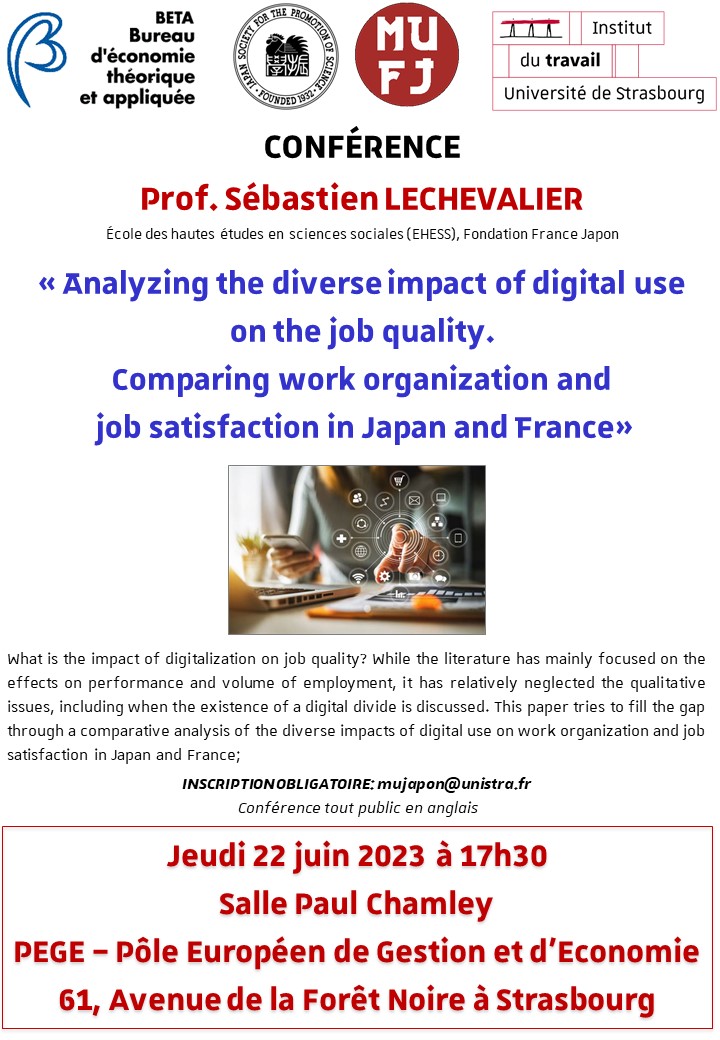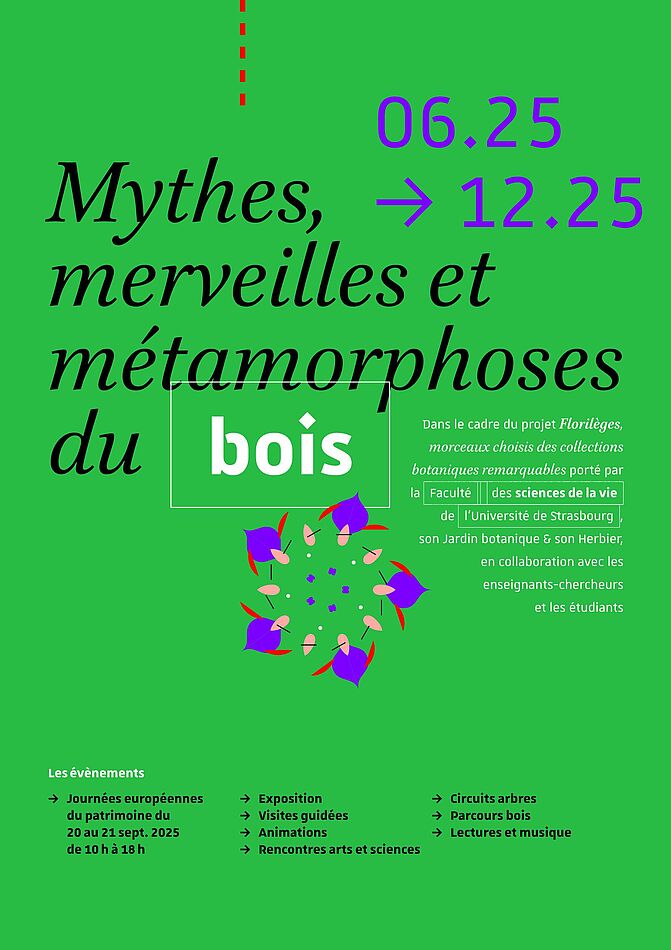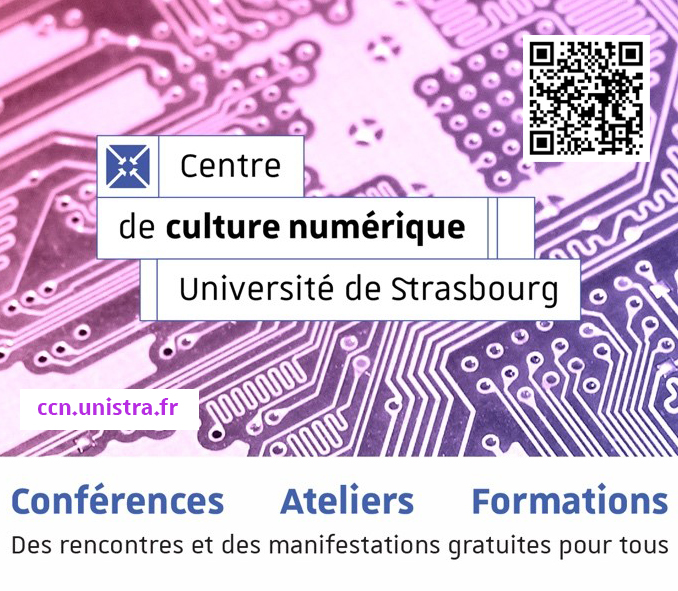La Maison Universitaire France-Japon, en collaboration avec The Japan Society for the Promotion of Science (JSPS), l’Institut du Travail et le Bureau d'économie théorique et appliquée (BETA) a le plaisir de vous convier à la conférence intitulée « Analyzing the diverse impact of digital use on the job quality. Comparing work organization and job satisfaction in Japan and France » jeudi 22 juin à 17h30 au PEGE. Elle sera animée par le Prof. Sébastien Lechevalier, EHESS, Fondation France Japon.
Inscription obligatoire ici
Conférence tout public, en anglais
Résumé:
What is the impact of digitalization on job quality? While the literature has mainly focused on the effects on performance and volume of employment, it has relatively neglected the qualitative issues, including when the existence of a digital divide is discussed. This paper tries to fill the gap through a comparative analysis of the diverse impacts of digital use on work organization and job satisfaction in Japan and France, two comparable countries with distinctive features regarding both digital use and work. To do so, we propose a simplified mediation model that synthesizes the different relations at stake. Our results can be summarized as follows. First, we did not find overall substantial differences between the two countries regarding the impact of digital use on job quality. Second, we find no direct effect of digital use on job satisfaction. However, digital use is correlated to some work organization practices, through which it has positive mediated effects. Third, the most massive source of the digital divide is, in both countries related to the absence of digital skills. We also find other sources of individual heterogeneity, for which the patterns are different between the two countries.
Evénement organisé par
Maison Universitaire France-Japon, en collaboration avec The Japan Society for the Promotion of Science (JSPS), l’Institut du Travail et le Bureau d'économie théorique et appliquée (BETA)



